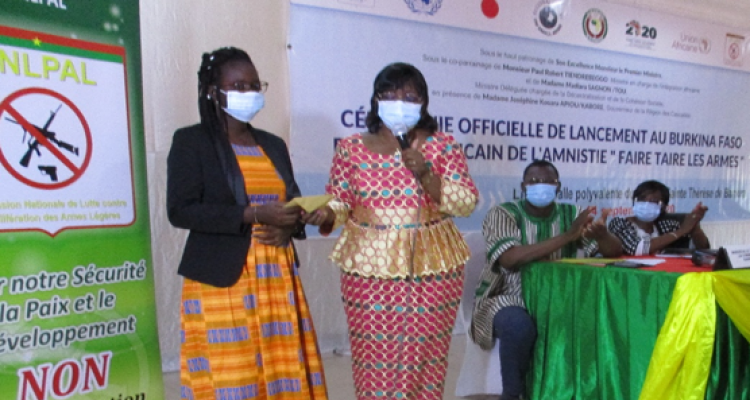
Seven African countries are currently completing efforts to collect illegally held weapons as part of a continent-wide annual amnesty period.
This follows four months of activities that started in September 2020 under the umbrella of the ‘Africa Amnesty Month’ which is an African Union (AU) initiative that seeks to protect the continent from the ravages of illicit small arms and light weapons.
Declared in 2017, Africa Amnesty Month falls every September. During the month people are encouraged and allowed to voluntarily hand over illegally held small arms under the conditions of anonymity and immunity from legal prosecution.
The seven countries - Burkina Faso, the Central African Republic, the Democratic Republic of the Congo, Cameroon, Côte d’Ivoire, Ethiopia and Kenya - are benefiting from the joint support of the AU Commission, the UN Office for Disarmament Affairs, and the Regional Centre on Small Arms in the Great Lakes Region and the Horn of Africa, with financial backing from Germany and Japan.

Working with local and international partners, the countries have been educating people on the dangers of illegal small arms and ammunition through both targeted media campaigns and in-person education campaigns that extend from major cities to rural areas.
Meanwhile, officials work behind the scenes to securely collect, record, store and ultimately destroy surrendered weapons.
The AU effort to free the continent of illicit firearms is one part of the organization’s “Silencing the Guns” flagship initiative, which governments are implementing under a 2016 Roadmap.
Africa Amnesty Month is open to people across the continent. To help promote it, organizers are encouraging civil society—especially women- and youth-led groups—as well as businesses, media entities, academia, think-tanks, and religious and traditional organizations to spread the word in their communities.
Young people were involved through the Youth Silencing the Guns campaign launched in July, with participating countries organizing youth contests to develop national campaign slogans for the Africa Amnesty Month.

Under the contest appeal “Your Voice Matters – What is your Slogan for the Africa Amnesty Month?”, youth in the seven countries were invited to develop creative and captivating slogans to highlight the dangers of owning illicit weapons and encourage handovers of arms during the Amnesty Month.
Two young women— Mireille Armelle Ilboudo Bamogo from Burkina Faso and Sandra Melvine from the Central African Republic —were selected as winners from about 200 entrants.
Describing their motivation for taking part in the contests, the contestants cited the need for strong solidarity on the continent for all to work together for peace; hope and certainty that a better future is possible; and the shared understanding that weapons do not offer the means to solve conflicts.
































